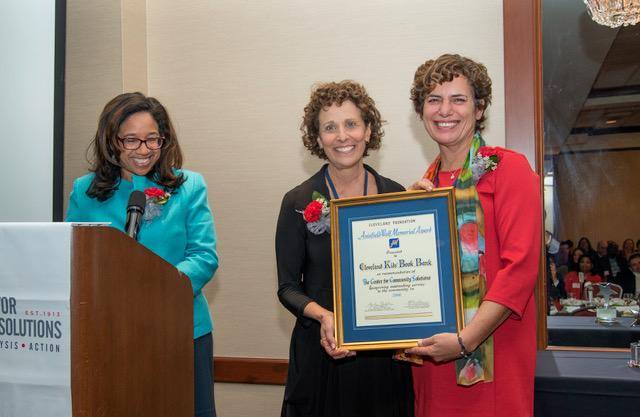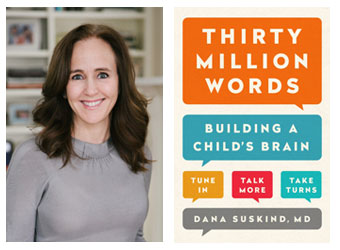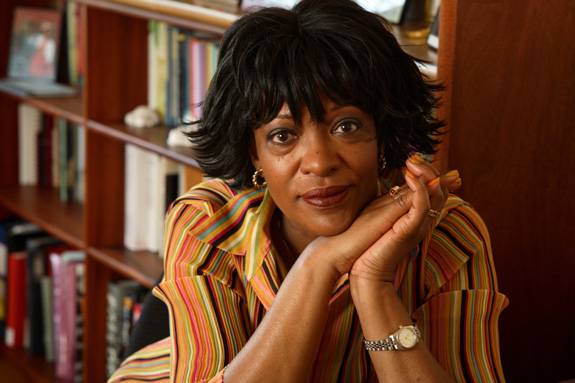The Cleveland Kids’ Book Bank is a juggernaut.
Less than 20 months after its founding in March 2016, it had distributed 848,583 free books to underserved children in Cuyahoga County.
And as hard as it is to visualize that number – even standing in a warehouse staffed by 3,000 volunteers – the number of titles is shifting upward, faster than the weekly update on its website can track.
For this tsunami of success, the Cleveland Kids’ Book Bank is the recipient of the 2017 Anisfield-Wolf Memorial Award, $25,000 given each fall to a nonprofit community organization for outstanding service. The prize is administered by the Center for Community Solutions, which describes itself as “a think tank with muddy boots.”
“Early exposure to reading is critical to brain development, literacy skills, school readiness and adult success,” said John R. Corlett, president of the Center. “Unfortunately, for many children, having a book is a luxury.”
Fitting snugly in the Anisfield-Wolf tradition, the Cleveland Kids’ Book Bank exists to foster literacy and a love of reading. But it exists only because two women — Judi Kovach and Judy Payne — put themselves in a position to have a moment of creative brilliance, then act upon it.
Book Bank Board Member Deena Epstein puts it this way: “If you want to find a book that represents the two Judys, I might suggest ‘The Wizard of Oz.’ If all the characters were rolled into two figures, you’d have Judi and Judy possessing heart, courage, brains and humility. Their road is paved not with yellow bricks, but with books, and it leads not to Oz but to Cleveland where all its children share a love of reading.”
Payne and Kovach met through the Little Free Library movement, which places birdhouse-like structures along city streets so that passersby can donate a book or take one home. In Cleveland, the women saw demand outstripping supply.
They learned of a Toledo, Ohio distributor that had been pulping hundreds of thousands of books, and – unlike anyone else in grassroots literacy – dared to imagine all those titles being diverted to Cleveland.
Where there once was a dead-end in a landfill, there is now a brimming warehouse where volunteers sort and box books to more than 600 partners – schools and nonprofit agencies, which put the books in the hands of children and their households.
But what does it mean to distribute more than 60,000 high-quality, gently-used books to Cleveland children each month?
The American Academy of Pediatrics issued a national report in 2014 calling on each parent to read aloud to their child – daily – from infancy. This is critical to a brain that triples in size in the first three years. It is essential to the neurological scaffolding that will allow a child to thrive.
You’ve heard of the 30 million word gap? That is chasm a child faces by age four who grows up in a language-impoverished home. And two-thirds of low-income households own zero children’s books.
The research is conclusive that reading to a child strengthens the bonds between child and caregiver, increases school readiness and improves brain development. There is powerful science showing that rich, interactive household language is the key architect to early brain growth – a phase that cannot be duplicated once the child is an adult.
In accepting their award, Payne credited her board and the battalion of volunteers, donors and bibliophiles who came together to make the Cleveland Kids’ Book Bank a thriving startup.
But Margaret Bernstein, the director of advocacy and community initiatives for WKYC, sees it differently. She introduced Kovach and Payne several years ago as she passed to them the leadership of some 60 local Little Free Libraries. And she likened the women to two sticks of dynamite.
“What happens when you put two sticks together?” Bernstein asked more than 300 guests gathered for the annual celebration of human services. “Let’s all say it: they go boom!”
The audience echoed the word, even as Payne took one step forward and improvised: “Books!” she shouted.


